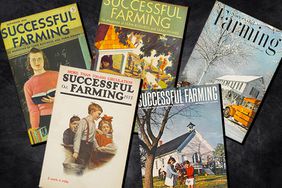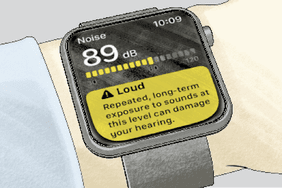:max_bytes(150000):strip_icc()/100024254_preview-2-ab43136da15b467b9063b6d229164b2f.jpg)
With reporting by Jodi Henke
Losing a loved one is a life-altering experience. Your world is shattered, your heart is broken, and your grief can be overwhelming. You will never get over it. You will never be the same.
For farm families, grief can also come from the loss of a crop, the death of livestock, or damaged family relationships. Grief is certainly felt when a farmer is no longer a farmer, whether that's through the loss of the farm or a retirement, even under the best of circumstances.
While these events may not be as devastating a death in the family, the grief that accompanies them is still very real.
- READ MORE: Grief in farm families
Larry Tranel is a dairy field specialist with Iowa State University Extension and also works in bereavement ministry. He says grief is a unique healing process. No two people experience it in exactly the same way or at the same pace.
"Grief is normal and can even be healthy as one reacts to the loss of something that is loved and cherished," Tranel says. "The goal is not to get over it, but to savor the memories of what was lost and process through grief to return to a meaningful life in one's own time."
Help for the Grieving
When supporting someone who has suffered a loss, it's important to remember healing is not a quick process. The grieving person may return to their normal activities and seem fine on the surface, but, Tranel says, "The world moves on even though the grief is still there."
- READ MORE: Dealing with grief after tragedy
Check in with grieving friends or family over time. "They want to know that the people they love and respect haven't forgotten them," he says. This is especially important for those who live in more isolated rural areas. Invite a grieving friend to do something with you. If they say no, ask again another time.
"Just get them out of the house," Tranel says. It doesn't have to be a big outing. Something as simple as a walk down the lane together or a drive to town can provide a much-needed change of scenery and some fresh air.
Remember not everyone who is grieving will seem sad. They may want or need to smile and laugh. If they laugh, laugh with them. If they feel like crying, let them cry.
"Research shows people are often best helped by a friend or family member, even more so than a trained counselor — though they may be very important in the process, too," Tranel says. Prepare to help a grieving friend find professional help if needed. Offer to drive them to counseling or help find a support group. Text them a list of nearby or online resources, including those below:
The Path to Healing
Grief is like a valley. "The magnitude and abruptness of the loss determines the amount of shock, denial, anger and anxiety that may occur and the associated feelings of avoidance, confusion, fear, blame, guilt and frustration that may surface in response," Tranel says.
When the loss occurs — even if it was expected — for the bereaved, it's like being thrown off a cliff. The initial shock and denial are accompanied by feelings of avoidance, confusion, and fear.
- READ MORE: Mother's Day without a mother
Anger often follows, along with feelings of blame, guilt, and frustration.
At the bottom of the valley, depression and detachment leave those grieving feeling overwhelmed, exhausted, and sometimes hopeless and even questioning their faith. "A loss of hope may cause unhealthy decisions," he says, which is why the next step is so important.
With the dialogue phase, the grieving person starts to climb out of the valley by reaching out to others and telling their story or talking about their loved one. They may still be struggling to find meaning for what has happened.
Then comes acceptance, when options are explored and a plan is formulated to live with this "new normal."
The hope is that through support of loved ones and by working through their own emotions, the bereaved can eventually return to a meaningful life. "It's just different than it was before," Tranel says.
The ground on the far side of the valley will likely never be as high it was before the loss, and there will no doubt be obstacles along the way, but with time and healing, the path becomes clearer and more possible to navigate.
Coping With Grief and Loss
The experts at Utah State University Extension offer these recommendations for those working their way through the grieving process:
- Write it down. Record your thoughts about the influence of the person you have lost. What are some of your favorite stories about them? Take your time with this and make it an ongoing process. Are there things you wish you could say to the person you lost? Write them a letter as part of this exercise.
- Talk it out. Support groups can be a wonderful resource, but you can get much of the same benefit from just talking with a friend who is also grieving. Knowing you aren't alone in your pain can help.
- Consider your "language" of grief. Try expressing your grief in different ways, like through writing, storytelling, or even art. Maybe you want photos of your loved one everywhere, or maybe you want to take them down. This may change over time and that's OK.
- Remember you're human. You are going to hurt after suffering a loss. Let yourself grieve. Try repeating a phrase like, "I'm in pain. This is part of the process," or, "Hello, grief. You're back. You are allowed to be here."
:max_bytes(150000):strip_icc()/LisaFoustPrater-5d5284849acc417c8678324f9c660161.jpg)








